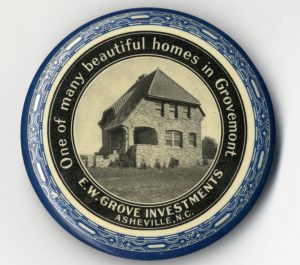“At precisely the same moment that Southern Appalachia was being irrevocably altered by widespread industrialization and immigration, social reformers and travel writers insisted on depicting the region as a remote outpost inhabited only by rawboned and coon-capped Anglo-Saxon Celtic (today’s Scotch-Irish) mountaineers.
“Harding Davis published a short story in 1875 in Lippincott’s Magazine that excoriated these fulsome travel writers of her age… ‘The Yares of Black Mountain’ tells the story of a Northern Civil War widow and her ailing baby and their journey to the North Carolina mountains. Arriving near Asheville, where a tourist from Detroit establishes the outsider’s view that ‘civilization stops here,’ they are joined by… the hilarious Miss Cook [from New York], who is working on a book, ‘Causes of the Decadence of the Old South.’
“Instead of the picturesque… Cook finds mountaineers dressed in ‘dirty calico wrappers’ and the panorama lacking grandeur. After a short tour of the town, she has ‘done the mountains and the mountaineers.’ She adds in the wonderfully affected parlance of the travel writers of her era that she doesn’t need to do any research or backwoods journeys, because she possesses the ‘faculty of generalizing.’ Cook’s story is over; the stereotypes for her readers will remain intact.”
— From “The United States of Appalachia: How Southern Mountaineers Brought Independence, Culture, and Enlightenment to America” by Jeff Biggers (2005)


